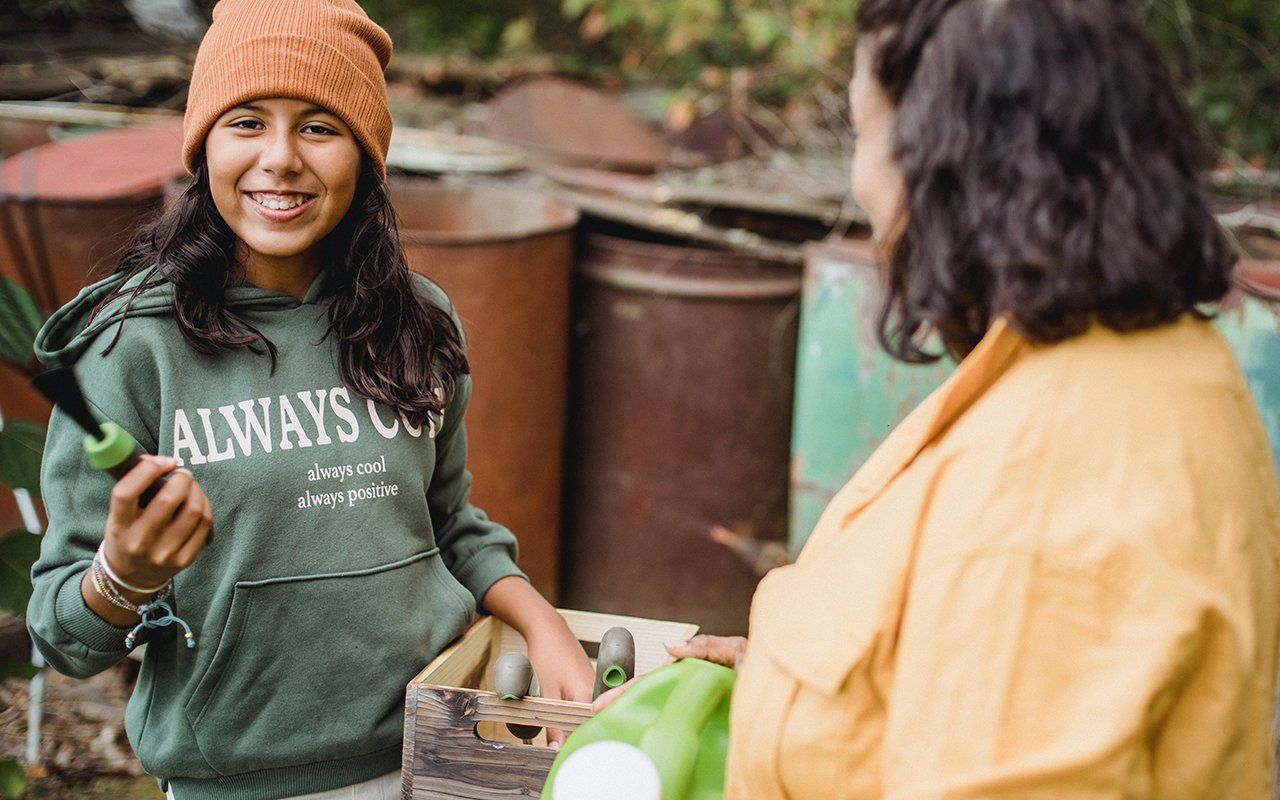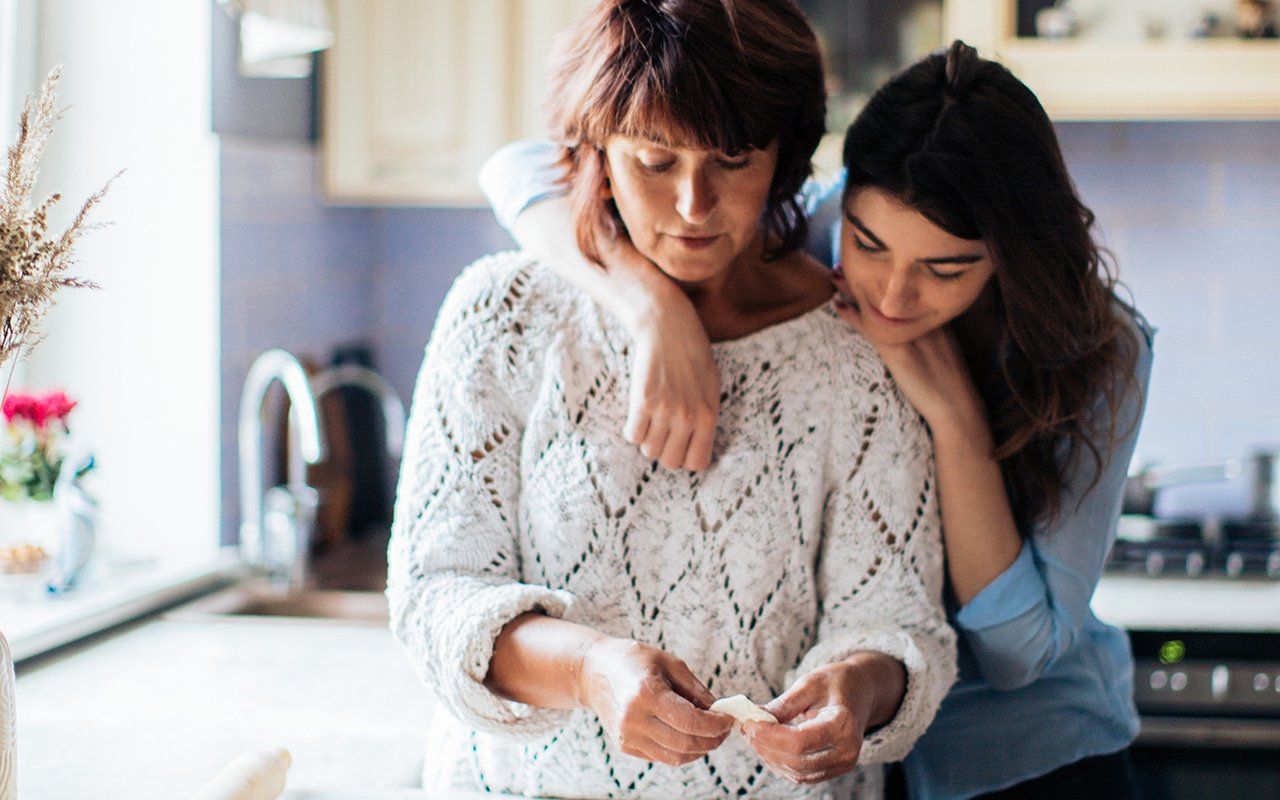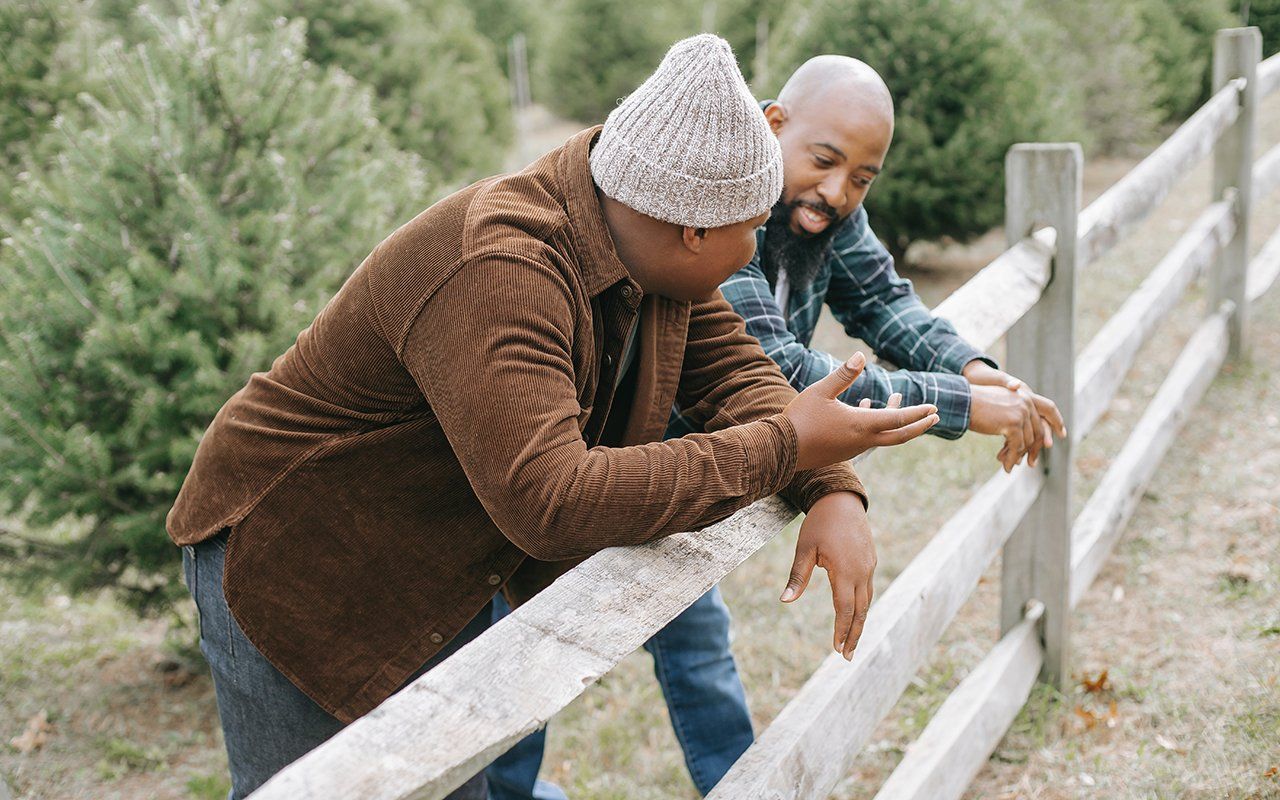CALL:
5 Powerful Things You Can Do If Your Child Tells You, "I'm Gay."

You may not have been expecting to hear the words "I'm gay" from your child. Not only did you never envision it, but your religious beliefs and values also do not align with same-sex relationships. So, what do you do now? How do you respond to your child telling you they're gay?
As a parent, you may have had the inclination that your child may be gay. As a result, the news may simply confirm your suspicions, and the conversation may be easy. On the contrary, you may feel angry or shocked. Likewise, you may struggle with the idea and have a natural tendency to shut down the conversation or put it off as merely a phase they're going through. In reality, regardless of how you feel, the way you respond in the first five minutes could set the tone for your child for years to come.
In this article, we'll discuss the critical moments after your child comes to you and says, "I'm gay." With the help of Dr. Devon Mills is a licensed therapist in Atlanta, GA, we'll highlight five powerful things you can do to help create a place of safety and love, regardless of how you feel about your child's sexual orientation.
Finding Out Your Child is Gay
When your child comes to you and says, "I'm gay." you may experience a flood of emotions. Yet, the first five minutes of your response is critical to your child. In fact, how you respond could set the tone for your child for years to come.
Having this conversation with your child may be difficult, especially if you weren't anticipating the news. In an ideal world, the response would be, "We love you no matter what and always will." Then, you'd praise them for having the courage to talk to you. Why?
Before any child or teen talks to their parents, they must work through a variety of potential fears they realize they could soon face. For example, when it comes to sexual orientation, the top concern is often the fear of losing your love. It's no secret that many kids' parents refuse to accept that they're gay. Therefore, your child likely wrestled with this consequence long before they chose to talk to you.
Next, they may fear you will kick them out. Unfortunately, it's not uncommon for parents to tell their child they must find a new place to live. As a result, this could also affect your teen's plans for college and largely impact their future. As such, their thoughts and fears leading up to this moment were likely intense and worrisome. Therefore, expressing your unconditional love and praising them for their courage could be pivotal for you and your teen.
3 Important "To-Do's" As You Respond to Your Child Telling You They're Gay
1.Do become curious. There's a difference between being curious versus inquisitive versus going into problem-solving mode. The best way to respond is through genuine curiosity. So, what might that look like?
As you respond, you can ask a question like, "Help me understand, what does it mean when you say you're gay?" This is important because being gay could mean quite a few different things to them.
First, they may feel less attraction to the opposite gender. As a result, they may believe they're gay.
Next, they may not feel interested in their same gender, and they're exploring what that means to them.
Finally, it could mean they feel a sexual attraction to the same gender, and they can confirm it is part of their identity. As such, they've decided they can no longer hold it in and want you to know.
2.Do check your tone. The wrong tone of voice can create defensiveness and bring the conversation to an abrupt halt. It's a good idea to avoid inquisitive questions such as, "How do you know you're gay?" or "What have you done?" These questions can harm the direction of the conversation almost instantly.
3.Do gather information without emotion. There are many ways to get answers to your questions and maintain a sense of calmness. For example:
How long have you known?
How long have you been wrestling with thoughts of being gay?
As you gather data through curiosity, instead of negative emotion, you're showing your desire to understand their experience. Using the phrase "Help me understand." is a great, non-combative way to open up the conversation.
You may experience a wide variety of emotions after learning your child is gay.
The goal of your initial response is to offer love and safety as you get up to speed with your child and where they are. Remember, the best reaction involves a genuine desire to understand what they're experiencing.
After the conversation ends, you'll likely feel a roller coaster of emotions. Over the next few hours, as you sit with the news, you may realize your reaction wasn't what you wished it would have been. Remember, you can never go wrong with an authentic apology.
In situations where being gay violates personal values and beliefs, you may feel as though apologizing is equal to condoning their behavior. However, the two are not the same. Therefore, you can offer an apology for your emotional reaction. Likewise, you can apologize for hurting their feelings, which doesn't mean you're endorsing their choice. For example, you can say, "I'm sorry I hurt your feelings." "I'm sorry about the emotion that was involved."
Remember, there are many ways to offer validation and an apology without condoning their behavior. For example, ParentGuidance.org offers great resources to help parents.
As you return to the conversation, own the awkwardness if necessary. It's ok to say, "This may be awkward, but I'm genuinely curious." Likewise, you can be authentic and say, "I don't know what to ask or say." Again, reiterating, your goal is to understand, not to persuade or invalidate.
It's ok if you don't know what to do. Now is a good time to lean into your relationship rather than pull away from it.
What to Do When Your Religious Beliefs Do Not Align With Being Gay
In response to your teen being gay, you may feel the urge to say, "We'll pray the gay away." Likewise, you may feel inclined to tell your child this is a phase or how wrong they are for their choice. However, responses like this are destructive and even detrimental.
You may wonder, can we pray the gay away? The answer is no. Although your child is attracted to the same gender, the idea behind the theory is that after a spiritual intervention, they're going to wake up and feel wholeheartedly attracted to the opposite gender. Dr. Mills says in his years of experience, this doesn't happen.
There are ways faith can play a role in your child's life. For example, some will choose to align their values and beliefs by adhering to their faith. As a result, they commit to living a heterosexual lifestyle. However, this doesn't change their sexuality. Instead, it means they're devoted to their value system and faith. They don't pray the gay away. Instead, they find a way to be gay and live a lifestyle congruent to their values.
Learning your child is gay may not align with your values or belief system. However, it's likely showing compassion and love does. It's not often you'll regret offering kindness, safety, and love. Likewise, you can love your child without loving their behaviors.
Your child is still your child. There hasn't been a transformation in your child with this new information. In reality, they may have been wrestling with their thoughts and emotions for years. In other words, you've loved your gay child, the difference is now you know they're gay. Who they are has not changed. This is still your child you've celebrated, loved, comforted, nurtured, and been proud of and, it can remain that way too.
Recap of What to Do When Your Child Tells You, "I'm Gay."
Your reaction to the news that your child is gay will likely have a major impact on your child for years to come. Likewise, it may set the tone for your relationship indefinitely.
Be prepared by incorporating these 5 powerful things into your response to your child telling you, "I'm Gay."
- Communicate safety and unconditional love.
- Approach the topic of being gay with curiosity. However, if you get it wrong, you can course-correct by offering a sincere apology. Remember, apologizing is not equal to condoning their behavior. Next, if you find it necessary, own the fact that this is difficult for you to discuss. Doing so offers transparency and can create an environment of safety and trust.
- Avoid inquisitive questions, and be aware of your tone of voice. If you're experiencing too many emotions to think clearly, it's ok to step away from the conversation for a few minutes and return after you compose your thoughts.
- Remember, this is your child, the same child they were just moments before they told you they're gay. Ideas such as praying the gay away are often painful and, in reality, unsuccessful.
- Keep in mind shame and rejection do not change sexual orientation. Instead, it creates distance and heartache that can increase as time passes. On the contrary, loving your child without loving their behaviors or choices is always an option.
At AddoRecovery.com, we're working to help parents and children come together to discuss complex topics. Learning your child is gay may be a hard conversation to have. However, your child needs you, possibly now more than ever, to show them you, too, can do hard things.








